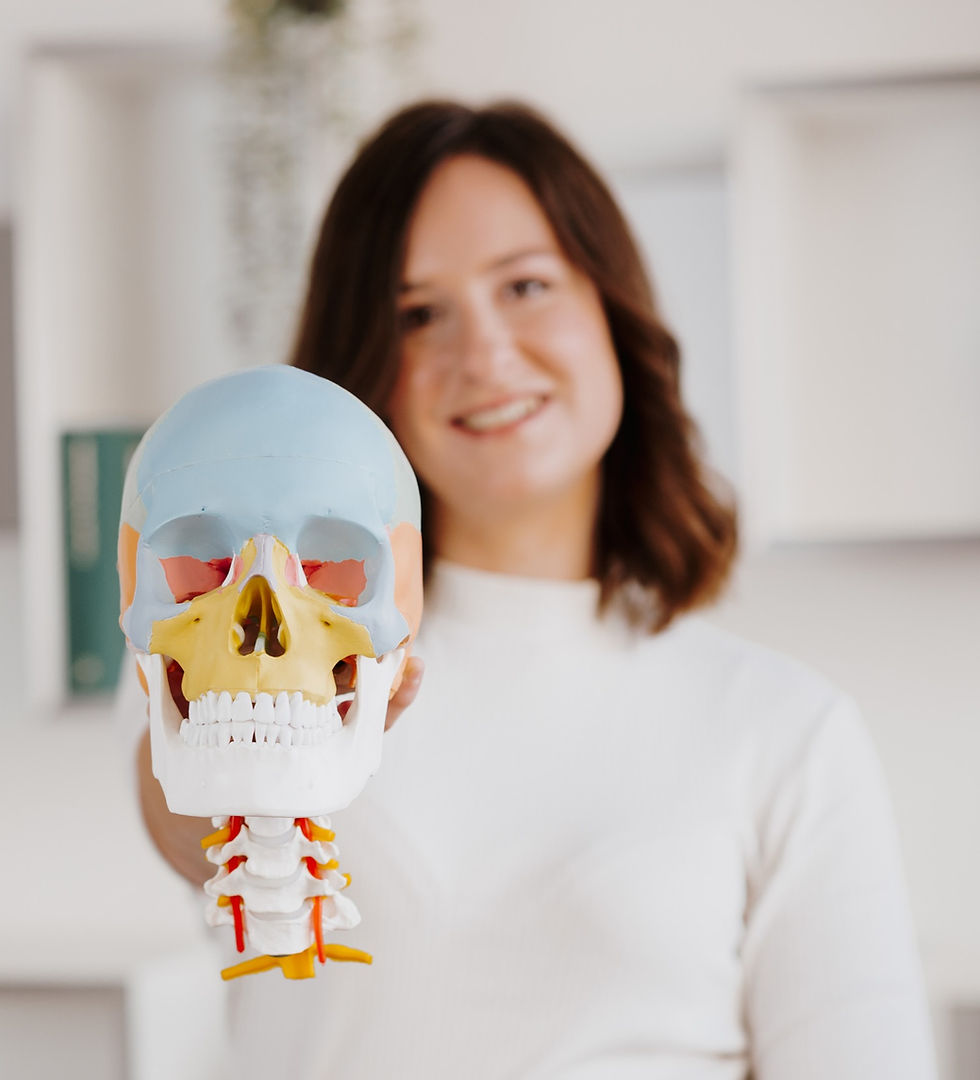How is three-month colic viewed by Osteopathy?
- Melanie Kirsten

- Oct 31, 2023
- 2 min read
Three-month colic is defined as problems with digestion resulting in persistent crying. Parents may notice the following complaints or symptoms with their babies: increased bloating, vigorous peristalsis (that appear to be severe abdominal cramps) or other signs of restlessness such as excessive crying, sweating (check the neck - does it feel warm and moist?), and pulling up the legs. These symptoms mentioned above are particularly noticeable in the late afternoon. Boys are more likely to be affected by three-month colic than girls.
Possible differential diagnoses for three-month colic could, for example, be the following illnesses, but these should be confirmed by a doctor:
- Cow's milk intolerance
- Lactose intolerance
- Malnutrition
- Enteritis (inflammation of the intestine)
- Reflux
- Invagination
- Incarcerated hernia
The following causes of three-month colic can be considered:
- multifactorial
- difficult adaptation of the gastrointestinal tract to food
- increased peristalsis due to increased motilin levels (motilin: a peptide hormone produced in the M cells of the small intestine and EC cells of the endocrine pancreas, promotes gastric motility and the motor functions of the large and small intestine)
- unphysiological intestinal flora with increased gas formation
- infant's drinking behaviour: drinking quantity, drinking speed, swallowing air
Osteopathic treatment for babies with three-month colic:
From an osteopathic perspective, manual examination and treatment can provide relief for babies suffering from three-month colic. A thorough initial anamnesis of the baby serves the purpose of finding out if there are any functional disorders within the visceral system (internal organs). Adhesions of the intestinal tissue can play a role as a contributing factor in three-month colic. During osteopathic treatment, the obstructed parts of the intestine can be mobilised, thereby providing prompt relief for the little ones. The focus is also on the arterial and venous supply as well as the nerval innervation of the abdominal organs. Not only are the abdominal organs examined, but also the baby in its entirety from head to toe in order to resolve any blockages or tension.
Over a long period of time without medical evaluation it could lead to complications:
- bouts of prolonged inconsolable crying
- stress on parents and thus strained bond with child
To find out more about how I can accompany and support you and your baby suffering from three-month colic, book a check-up appointment at: https://www.doctolib. de/osteopath/muenchen/melanie-kirsten.
I hope you enjoyed the post "Three-Month Colic" and you were able to learn something new! If you have any questions, please contact me!
Thanks for reading!
Your Mel





Comments